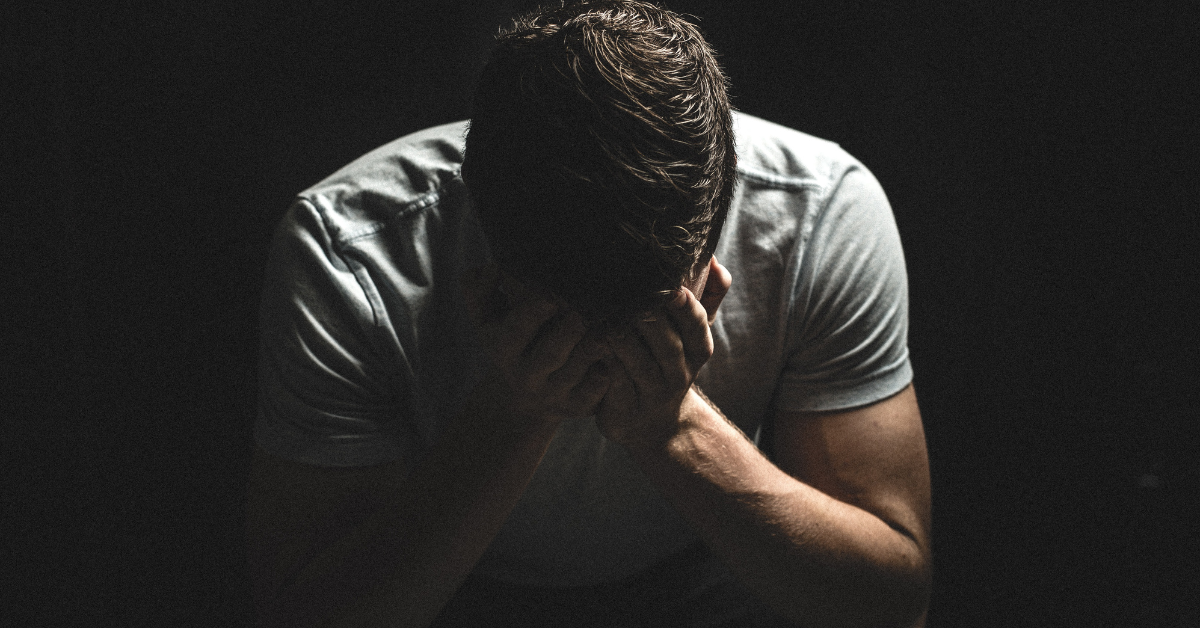Most people don’t realize that alcohol belongs to the depressant category rather than stimulants. The central nervous system slows down and brain function decreases – these effects place alcohol in the depressant class. Understanding alcohol’s role as a depressant is vital to grasp its effects on mental health and overall well-being.
Alcohol and mental health share a complex relationship that changes brain chemistry both immediately and over time. Though people might feel energized at first, alcohol’s depressant nature ends up changing their mood, behavior, and cognitive function. This piece explains why alcohol is a depressant, shows its dual nature, and describes how it affects mental health. You’ll also find helpful information about identifying alcohol use disorder and finding the right support.
Understanding Alcohol as a Depressant
Alcohol causes major changes in the central nervous system, making it one of the most accessible depressant substances to study. Depressants are substances that reduce arousal and stimulation in the body and slow down messages between the brain and body.
Alcohol boosts the effects of gamma-aminobutyric acid (GABA), which is the main inhibitory neurotransmitter in the central nervous system. This boost creates several characteristic effects:
- Reduced anxiety and stress
- Slowed reaction time
- Impaired judgment
- Slowed breathing
- Disturbed perceptions
- Unsteady movement
- Slurred speech
Alcohol’s effect on the central nervous system changes simple functions remarkably. It binds to specific brain receptors as a CNS depressant and decreases neural activity. This reduced brain function changes everything from speech and reactions to movement and cognitive processing.
Understanding alcohol’s depressant effects requires knowledge of its relationship with GABA. GABA regulates brain activity by inhibiting nerve transmission. Alcohol in the system binds to specific sites on GABA-A receptors and amplifies GABA’s natural calming effects. This interaction increases chloride ion flow into neurons, which makes them less likely to fire and reduces overall brain activity.
Regular alcohol exposure can alter GABA function substantially. The brain adapts to alcohol’s presence and reduces its natural GABA production, which creates tolerance and possible dependence. This adaptation explains why people need more alcohol to achieve the same effects, which can lead to alcohol use disorder.
The Dual Nature of Alcohol: Stimulant vs. Depressant Effects
Research shows that we classify alcohol as a depressant, but the sort of thing I love about it is how it affects the human body in two distinct ways. It acts as both a stimulant and sedative, and these effects follow a predictable pattern in their timing and strength.
Original stimulant-like effects
Your body experiences distinct stimulant effects when you start drinking alcohol and your blood alcohol levels rise. The brain releases dopamine, often called the “happy hormone,” which creates feelings of euphoria and energy. These effects become most noticeable as blood alcohol concentration (BAC) reaches 0.05 mg/l, resulting in:
- Faster heart rate
- Better sociability
- Improved mood
- Greater confidence
- Higher energy levels
Transition to depressant effects
The body experiences a transformation in alcohol’s effects when blood alcohol concentration reaches 0.08 mg/l—the legal driving limit across most U.S. states. Alcohol’s depressant properties take control at this stage. The original euphoric feeling fades into sedative effects that cloud mental clarity, reduce coordination and slow down reaction times.
Factors influencing individual responses
People react differently to alcohol’s stimulant and depressant effects by a lot based on several important factors. Body chemistry is a vital component that affects reactions along with a person’s alcohol tolerance level. Studies show that people who feel stronger stimulant effects and fewer sedative effects might have a higher risk of developing alcohol use disorder.
The response to alcohol depends on many other factors:
- Mood before drinking
- Social environment
- Sleep and tiredness levels
- Genes
- How fast someone drinks
Scientists have found that this biphasic response—the shift from stimulation to depression—follows the blood alcohol curve. Stimulant effects dominate during the rising phase and depressant effects become stronger in the declining phase. Individual variations in these response patterns explain why alcohol affects some people more than others.
Short-term and Long-term Effects of Alcohol on Mental Health
Alcohol consumption demonstrates both immediate and long-lasting effects on mental health. This creates a complex psychological pattern that substantially affects a person’s wellbeing.
Quick Effects on Mood and Behavior
Alcohol starts affecting mental health right after the first drink. Some people feel temporary euphoria, but alcohol disrupts brain chemistry and leads to:
- Confusion and poor decision-making
- Impaired memory formation
- Reduced inhibitions
- Mood swings
- Increased risk of accidents
- Cognitive impairment
Chronic alcohol use and mental health disorders
Long-term alcohol consumption creates most important mental health challenges. Research indicates that regular heavy drinking changes brain chemistry, especially when affecting neurotransmitters like dopamine and serotonin. These changes can trigger persistent mental health issues. Studies show that 27% to 40% of people with major depressive disorder have a co-occurring alcohol use disorder.
The body adapts to regular alcohol consumption and reduces its natural production of “happy hormones.” This creates a cycle where if you have alcohol dependency, you might drink more to achieve the same emotional effects. This behavior ended up making your mental state worse.
Alcohol’s role in exacerbating existing mental health conditions
If you have pre-existing mental health conditions, alcohol can complicate your psychological well-being by a lot. Studies demonstrate that alcohol use disorder commonly occurs among other severe mental illnesses, such as schizophrenia and bipolar disorder. This combination often makes symptoms worse and affects treatment results.
Having both alcohol use disorder and mental health conditions can result in:
- More frequent psychiatric symptom relapses
- Higher chances of hospital stays
- Increased suicide attempt rates
- Problems keeping stable housing
- Reduced effectiveness of mental health medications
The connection between alcohol and anxiety disorders raises special concerns. Alcohol use disorder affects 20% to 40% of people with anxiety disorders. Some people drink alcohol to handle their anxiety symptoms. This self-medication approach makes anxiety worse over time and creates a harmful cycle of dependency that damages mental health.
Recognizing Alcohol Misuse and Seeking Help
People need to identify signs of problematic drinking and seek appropriate help as significant steps to address alcohol use disorder. A person’s awareness of specific behavioral and physical indicators helps determine if casual drinking has become a serious concern.
Signs of alcohol addiction
People who struggle with alcohol addiction show clear warning signs that suggest they need professional help:
- Can’t control how much they drink
- Drinking disrupts their work and family life
- Need more alcohol to feel the same effects
- Experience withdrawal symptoms without alcohol
- Keep drinking despite harmful effects
- Spend much time getting or recovering from alcohol use
Available treatment options
Treatment for alcohol use disorder adapts to your specific needs and situation. Professional treatment programs usually include these components:
Medical detoxification happens under careful supervision to manage withdrawal symptoms safely. This significant first step usually takes 2-7 days. Doctors might prescribe medication to prevent dangerous complications.
Behavioral treatments help you identify and change alcohol-related behaviors. The treatment options include cognitive-behavioral therapy, motivational enhancement therapy, and family counseling.
Medication-assisted treatment (MAT) blends prescribed medications with counseling to tackle both physical and psychological aspects of addiction. Doctors commonly prescribe naltrexone, acamprosate, and disulfiram.
Importance of professional support
Professional support increases your chances of successful recovery by a lot. Research shows that people who get professional help are much more likely to stay sober compared to those who try recovery alone. The Substance Abuse and Mental Health Services Administration (SAMHSA) runs a confidential helpline (1-800-662-HELP) that connects you with treatment resources.
Support groups work alongside professional treatment to give you peer support and accountability. Organizations like Alcoholics Anonymous, SMART Recovery, and Women for Sobriety offer well-laid-out programs and community support if you have started your recovery journey.
Medical professionals assess your overall health, check how severe your alcohol use disorder is, and create tailored treatment plans. They also keep track of any mental health conditions that might make recovery harder and help you deal with them.
Alcohol Treatment at Milton Recovery
Research shows that alcohol acts as a depressant, though it might make you feel energized at first. The way alcohol changes brain chemistry creates a complex relationship with mental health. It disrupts neurotransmitters and can lead to immediate and future psychological issues. Alcohol’s dual nature makes it especially dangerous when you have existing mental health conditions. The effects shift from temporary excitement to significant depression of the central nervous system.
A better understanding of how alcohol affects mental health helps you make smart choices about drinking habits and spot early warning signs of problems. Doctors and healthcare providers play a crucial role to treat both physical and psychological aspects of alcohol use disorder. They create personalized treatment plans that work for each patient. The best way to recover and maintain good mental health combines professional help with proper medical oversight.
At Milton Recovery Centers, we understand that treating alcoholism goes beyond breaking a habit; it’s about healing a life. Every individual who walks through our doors carries a unique story, often one filled with pain, loss, and moments of resilience. We know that recovery is not just about detox or sobriety milestones; it’s about reigniting hope, rebuilding self-worth, and finding strength in the community. Here, patients are not defined by their struggles but by their courage to seek help. With compassionate care, structured support, and an unwavering belief in the potential for transformation, Milton Recovery Centers becomes a place where people discover that healing is possible and a fulfilling, sober life is within reach.





12 thoughts on “Is Alcohol a Depressant?”
I know a person who struggles with alcohol, and it really is an insidious drug. It makes you feel so good in the moment and then consumes you over time.
I knew this but found it super interesting to read about the details and how it really affects the brain. Great info.
I can relate to this so much. As well as journaling and practising self-care, Alcohol feels like my only escape sometimes, especially when everything feels overwhelming. It gives me that temporary relief, even if I know it’s only a quick fix. Maybe it’s time to consider other ways to cope.
Now that is an interesting topic to think about and definitely learned something new from this. No wonder a lot of people drink a lot, they are using it as a depressant and its hard to come back from an addiction as well.
Alcohol is such an insidious drug. I’ve known a few people in my life who went down the rabbit hole of alcoholism, and it destroyed their lives.
Such a great post with so many important points about alcohol! I love what you stated: It is not all about breaking the habit of alcoholism, it’s about healing and finding the root of them drinking.
There’s so much to learn and digest here. I think it’s smart to educate yourself on these details both if you are choosing treatment or someone you know. Thanks for the breakdown.
Reading this helps me understand how alcoholics get into the cycle of drinking for that initial stimulant. But the real danger is the depression with chronic use. Thank you very much for this information!
Alcohol is a double-edged sword. Many do not realize the extent of alcohol and the damage it can do to the mind and body. And not to mention those who are alcoholics.
I have learned a lot from this and now I understand why a lot of people drink alcohol.
It’s a good topic for discussion. Alcohol is a double-edged sword and can definitely be good if done in moderation. Else it can further increase depression in people who are using it an an antidote for depression.
This was an extremely interesting read! It’s important to know as much about potentially abused substances, including alcohol, so that over-use can be prevented. Education is the best way to prevent abuse!